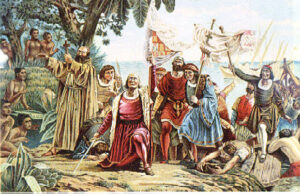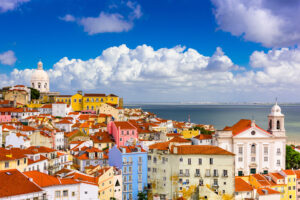Portuguese literature is a rich tapestry that reflects the country’s historical, cultural, and social evolution. From its medieval origins to contemporary works, Portuguese literature has evolved through various phases, each marked by distinctive styles, themes, and influences. This exploration delves into the key periods and movements in Portuguese literature, highlighting its development and impact.
Medieval Portuguese Literature
The Origins of Portuguese Literature
Portuguese literature has its roots in the medieval period, with early works primarily written in Galician-Portuguese, the language spoken in the northwest of the Iberian Peninsula. This period was characterized by the influence of troubadour poetry, which celebrated themes of chivalry, love, and courtly life.
Cantigas de Santa Maria
One of the most significant contributions to medieval Portuguese literature is the Cantigas de Santa Maria (Songs of Holy Mary), a collection of devotional songs dedicated to the Virgin Mary. Compiled during the reign of King Afonso X of Castile in the 13th century, these songs reflect the religious and cultural values of the time. The Cantigas are notable for their blend of lyrical poetry and musical composition, representing a key element of medieval Iberian literature.
The Epic Poem of the “Chançon de Roland”
In addition to the Cantigas, the Chançon de Roland, a Portuguese adaptation of the French epic poem Chanson de Roland, is an example of medieval Portuguese literature. This adaptation reflects the influence of French chivalric traditions and highlights the exchange of literary ideas across Europe during the medieval period.
The Renaissance and Humanism
The Emergence of Renaissance Literature
The Renaissance period in Portugal, spanning the late 15th and early 16th centuries, saw the emergence of a new literary style influenced by humanism and classical antiquity. This era was marked by a renewed interest in classical literature, philosophy, and the arts.
Luís de Camões and “Os Lusíadas”
One of the most celebrated figures of Portuguese Renaissance literature is Luís de Camões, whose epic poem Os Lusíadas (The Lusiads) is a cornerstone of Portuguese literary tradition. Published in 1556, Os Lusíadas recounts the voyages of Vasco da Gama and celebrates Portugal’s maritime achievements. The poem blends classical epic conventions with Portuguese national pride, reflecting the Renaissance ideals of exploration and heroism.
The Influence of Humanism
Humanism, with its emphasis on the value of individual experience and classical learning, influenced Portuguese literature during the Renaissance. Writers such as Sá de Miranda and Bernardim Ribeiro incorporated humanist themes into their works, exploring the complexities of human nature and the pursuit of personal fulfillment.
The Baroque Period
The Characteristics of Baroque Literature
The Baroque period in Portuguese literature, spanning the late 16th and 17th centuries, was characterized by elaborate and ornate style. Baroque literature often focused on themes of transience, the contrast between life and death, and the complexities of human emotions.
António Vieira and the Baroque Sermon
António Vieira, a Jesuit priest and preacher, is a notable figure of Portuguese Baroque literature. His sermons, known for their rhetorical flourish and profound philosophical insights, exemplify the Baroque style. Vieira’s works reflect the period’s preoccupation with the fragility of life and the quest for spiritual meaning.
The Influence of Spanish and Italian Literature
During the Baroque period, Portuguese literature was also influenced by Spanish and Italian literary traditions. The adaptation of these styles into Portuguese literature resulted in a unique blend of local and foreign elements, contributing to the richness of the Baroque literary landscape.
The Enlightenment and Romanticism
The Enlightenment Era
The Enlightenment period in Portuguese literature, spanning the 18th century, was marked by an emphasis on reason, science, and the pursuit of knowledge. Enlightenment literature often critiqued established social norms and sought to promote rational thought and progress.
The Works of Voltaire and Montesquieu
Portuguese Enlightenment literature was influenced by the works of French philosophers such as Voltaire and Montesquieu. Their ideas on political and social reform resonated with Portuguese writers, who sought to address issues of governance and societal improvement in their works.
Romanticism in Portugal
Romanticism, which emerged in the early 19th century, brought a focus on emotion, individualism, and a deep connection to nature. Portuguese Romantic literature was characterized by its exploration of national identity, folklore, and the romantic ideals of heroism and sacrifice.
Almeida Garrett and the Romantic Drama
Almeida Garrett, a leading figure in Portuguese Romantic literature, made significant contributions through his plays and poetry. His work Frei Luís de Sousa, a historical drama, reflects the Romantic fascination with national history and individual heroism. Garrett’s literary output represents a key moment in the development of Portuguese theater and poetry.
The Influence of Portuguese Folklore
Romantic writers in Portugal also drew inspiration from local folklore and traditional stories. This focus on indigenous culture and national identity contributed to the creation of a distinct Portuguese Romantic literature that celebrated the country’s cultural heritage.
Modernism and Contemporary Literature
The Modernist Movement
The early 20th century saw the rise of Modernism in Portuguese literature, characterized by experimentation with form, language, and narrative techniques. Modernist writers sought to break away from traditional literary conventions and explore new ways of representing reality.
Fernando Pessoa and the Modernist Poem
Fernando Pessoa, one of the most influential Portuguese writers of the 20th century, is a key figure in Modernist literature. His work is known for its innovative use of heteronyms—distinct literary personas with their own voices and styles. Pessoa’s poetry, including his seminal work The Book of Disquiet, reflects the Modernist interest in subjective experience and fragmented identity.
The Impact of Political and Social Changes
Modernist literature in Portugal was also shaped by political and social changes, including the rise of authoritarian regimes and the impact of World War II. These influences are reflected in the themes and concerns of Portuguese Modernist writers, who grappled with issues of identity, authority, and societal transformation.
Contemporary Portuguese Literature
Contemporary Portuguese literature continues to evolve, reflecting the complexities of modern life and the diverse experiences of contemporary Portuguese society. Contemporary writers explore a wide range of themes, including globalization, migration, and social justice.
Contemporary Voices and Themes
Contemporary Portuguese literature is marked by a diversity of voices and styles. Writers such as José Saramago, who won the Nobel Prize in Literature in 1998, have made significant contributions to the field. Saramago’s works, including Blindness and The Gospel According to Jesus Christ, address themes of human experience and societal critique.
The Role of Literature in Contemporary Society
In contemporary Portugal, literature plays a vital role in reflecting and shaping societal issues. Writers engage with themes of identity, memory, and cultural heritage, contributing to ongoing discussions about Portugal’s place in the global context and its evolving national identity.
Conclusion
Portuguese literature has undergone significant transformations throughout the ages, reflecting the country’s historical, cultural, and social changes. From its medieval origins to contemporary works, Portuguese literature has contributed to the broader literary tradition with its unique voices and perspectives. Each period in Portuguese literary history has left a lasting impact, shaping the country’s literary landscape and influencing global literary trends. The evolution of Portuguese literature continues to be a testament to the richness and diversity of Portugal’s cultural heritage.



